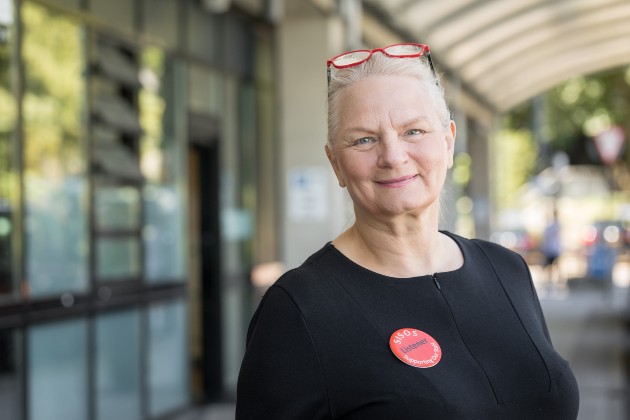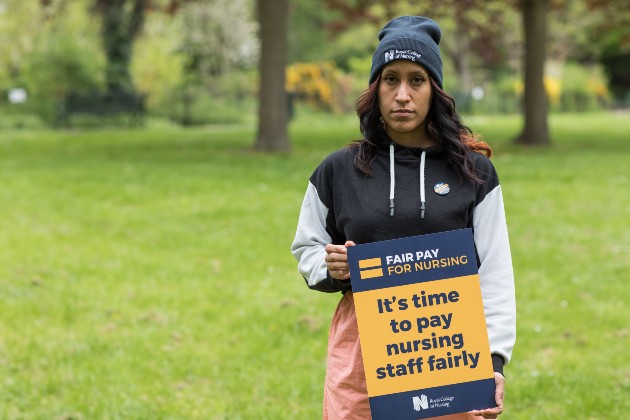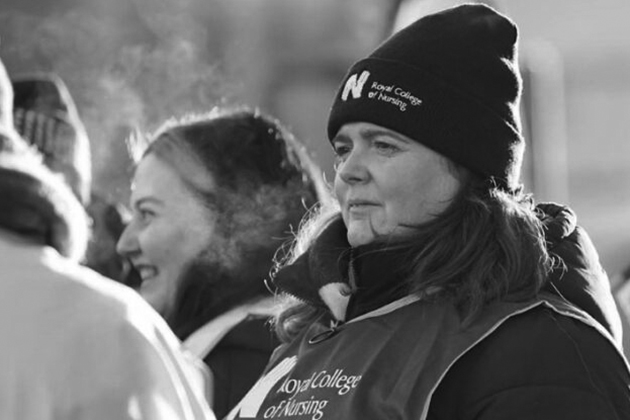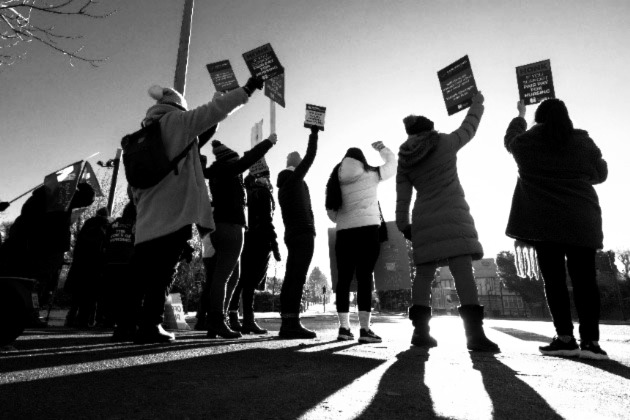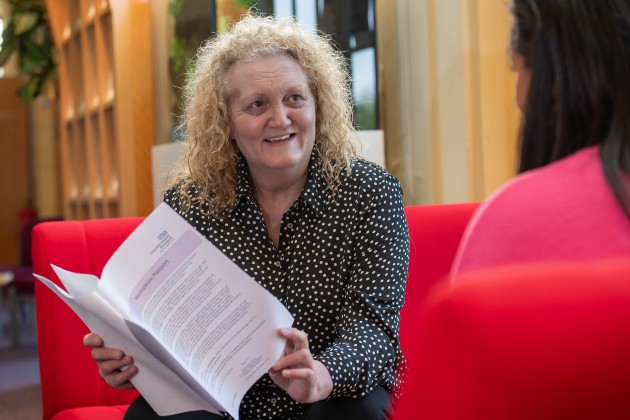Carol was just about to go home after finishing her shift when she became aware of a safety incident that had happened in theatre.
“The doctor involved was in distress and I just wanted to make sure she was alright. But I didn’t have the right or permission to approach her. I couldn’t sleep that night. I was so worried about her,” Carol recalls.
The next morning Carol spoke to the matron about her concerns. The incident had made her think about how important it is for all staff to have quick access to timely support when these incidents happen.
She also found herself reflecting on an error she’d made in theatre a few years back when she’d accidently passed an unsterilised k-wire to a surgeon, who then drilled it into the patient’s bone.
“At the time, my very first response was to think that I could get away with it if I didn’t say anything,” she says.
“I was panicking of course, and I very quickly came to my senses and raised the issue. But I know that feeling of complete fear. I couldn’t help but wonder – if I’d been working with a difficult surgeon or had an unsupportive matron, would I have owned up?”
Carol knew she had to do something.
Staff need to know that making a mistake doesn’t make them a bad person or an incompetent professional
“Staff need to know that making a mistake doesn’t make them a bad person or an incompetent professional. We’re all human and until you’re in that situation, you don’t know how you’ll react. However aware you are of your duty to speak up, this doesn’t stop you from feeling afraid,” she says.
“If someone doesn’t own up to a mistake immediately, it doesn’t automatically make them a bad nurse, midwife, HCA or doctor. It might just be that their overriding emotion is that of fear and they’re panicking.
“That’s why we need safe spaces, peer support and an open and honest culture. To get these in place at work, I needed to get organised.”
Supporting staff
Gathering local support was essential, so Carol gave a presentation to her department outlining the importance of getting quick help to staff involved in safety incidents.
Before long other managers asked her to present to their teams. She also shared her thoughts on the Royal Free London’s staff intranet and people started to pay attention.
To take things further Carol knew she needed evidence to back-up her case, so she wrote to the Louise Tebboth Foundation, a charity that focuses on the prevention of suicide and the mental wellbeing of doctors in England and Wales, and shared her ideas with them.
She was delighted when they offered £500 to provide furniture for a staff safe space, a place for staff to go to when they needed a safe psychological space to sit comfortably and feel supported.
“Their endorsement of my ideas was as important as the money,” Carol says. “I approached the Royal Free Charity to handle the donation and they were so impressed that they funded three more safe spaces across the trust."
I had to break the mould by proactively offering help
At this stage Carol sought further advice, writing to national and global experts on the issue, to share her thinking.
“It’s important to get expert support for your ideas and if it turns out you’re wrong, you’ll learn from it,” Carol explains.
Although things were going well and Carol’s confidence was growing, she was still concerned that people wouldn’t use the new spaces. She put a counting box in each safe space and found that more than 50 people were using them every week.
“I then knew this was an important resource to enable staff to step aside and unwind and that I had to break the mould by proactively offering help,” she says. “We work in a kaleidoscope of systems – just one small movement and we can be confronted with a very different picture.”
Building a team
Four years on and Carol’s work has gone from strength to strength. The trust’s charity has provided advice and support for buying equipment while also paying the salaries for two posts that specifically support staff involved in safety incidents.
Carol is the SISOS (Safety Incident Supporting Our Staff) lead nurse in one of these posts. To support the people involved in adverse advents, she uses three levels of support:
- Listeners – who have awareness training and signpost people to SISOS
- Key listeners – who are trained to give peer support and signpost to the third level of professional support. Patient safety and clinical governance teams work alongside key listeners to support staff on this level
- Professional support – such as occupational health, chaplaincy, psychological support and the employee assistance programme, with access to the organisation’s legal support teams.
Carol, who’s also a mental health first aider, has been instrumental in making changes to the organisational culture, building staff resilience, managing a staff helpline, providing peer-to-peer support and helping staff access urgent help if needed.
Having established a support hub in her hospital, she’s now looking to replicate the set-up across the trust, so part of her role also involves spreading the word about what support is available – presenting at inductions, staff wellbeing days, sharing posters, developing badges and lanyards for listeners and key listeners, so they’re easily recognisable and people feel confident to approach them.
And all staff in the trust are encouraged to use the service. “Administration staff, for example, may seek support if they key-in data incorrectly, or there’s a breach of confidentiality. They get every bit as distressed,” Carol says.
Using local knowledge
Carol found that using local knowledge and contacts is the best way of organising and making things happen. She explains:
“By involving staff, what you come up with is rooted in reality and can be cheaper. It also helps to build trust so people are more likely to use the service, which they might not if it’s just imposed on them.
“Some staff feel ashamed if they’re involved in a safety incident – they don’t want people to know so it helps if they know and trust the people who will provide the emotional support. And by talking about the situation from induction onwards, it helps normalise things.
Some staff feel ashamed if they’re involved in a safety incident
“We share the message that these things can happen and I’m happy to talk about my own experiences.”
The benefits for the trust, staff and patients are clear to see. Patients and staff feel more comfortable about opening up about sensitive issues to “listeners”, who are easily identified as they wear badges. The number of safety incidents is being reduced too, with a focus on a learning, rather than a blaming, culture.
Sickness levels have also been reduced as staff now feel more supported to take time out if they need to and importantly, they have a safe place to go.
Carol’s next goal is to raise public awareness about the issue so a more understanding culture can benefit everyone. “I want to go national, and then I’ll retire,” she says.
Carol’s tips
Carol is a keen advocate for local organising.
“I’m one nurse who has shown that by being innovative you can bring about change from the ground up, for the benefit of everyone, including patients,” she says.
“Be courageous and don’t be put off by challenges. Write business cases, write letters to trust executives, show up at meetings and seek support from local staff.
“I wouldn’t want anyone to think that it’s going to be easy. It’s not. But it is possible if you have a genuine belief in what you’re setting out to achieve.”
With her organising experience behind her, what advice does Carol have for RCN members?
- Be patient. Sometimes getting results can take a long time.
- Be realistic. An organised approach that’s rooted in reality is more likely to succeed.
- Get evidence. Don’t be afraid to approach experts for advice.
- Don’t get disheartened. If you get something wrong, learn from it and keep going forward.
- Be local. Use your local contacts and knowledge.
- Get staff support. People respect what they’ve worked to get.
- Use resources available to you. Carol used the RCN Library where staff helped her with downloading the evidence she needed.
Want to organise for change?
Carol attended the London Organising for Power course where she realised that she is already an organiser.
We’re on a mission to train thousands of RCN members to develop their organising skills to help them fight for whatever issues matter to them, including fair pay.


